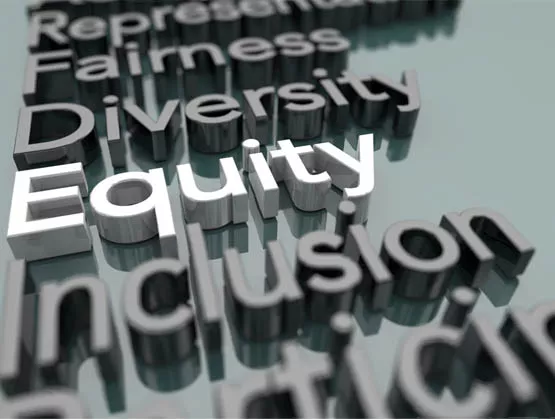
SEMI spoke with Anja Maria Muesch, Head of Use Case Management for Operations Digital Solutions, and Dr. Philip Matthes, Head of Global Human Resources Semiconductor Materials, at Merck KGaA, Darmstadt, Germany about the challenges and opportunities of generational diversity in the electronics industry workforce.
Muesch and Matthes shared their views ahead of Merck KGaA, Darmstadt, Germany’s participation in the Future of Work panel discussion Leveraging Generational Differences in the Shifting Workplace at SEMICON Europa in Munich, Germany on November 15, 2022. Registration is open. Participation is complimentary for all SEMICON Europa visitors.
SEMI: Merck KGaA, Darmstadt, Germany has an elaborate strategy for workplace diversity and inclusion. Does the strategy consider generational differences in the workplace?
Philip: Indeed, at Merck KGaA, Darmstadt, Germany we understand that diversity, equity, and inclusion (DE&I) is a business and people imperative, not a topic, issue, or hobby. DE&I at Merck KGaA, Darmstadt, Germany includes, but is not limited to, gender identity, culture, ethnicity, race, religion, sexual orientation, nationality, socioeconomic and family status, language, mental or physical abilities, age, mindset, faith, military service, and political perspective. Prioritizing DE&I will help Merck KGaA, Darmstadt, Germany secure its position as a science and technology leader, and we approach it with the same purpose and intention that we apply to running our global business.
 We recognize the true value of diversity and embrace the rich mix of our people to meet the ambitious targets and achieve the business impact we are after; we aim to increase Group sales to approximately € 25 billion by 2025. One of the three robust aspirations we have set for 2030 and pledged to our people, partners, and the industry is to continue to accelerate our efforts to create a truly inclusive culture for all employees, including those from different generations.
We recognize the true value of diversity and embrace the rich mix of our people to meet the ambitious targets and achieve the business impact we are after; we aim to increase Group sales to approximately € 25 billion by 2025. One of the three robust aspirations we have set for 2030 and pledged to our people, partners, and the industry is to continue to accelerate our efforts to create a truly inclusive culture for all employees, including those from different generations.
SEMI: Why is generational inclusion a key element to consider?
Philip: I have witnessed that each generation embodies unique skillsets and experiences, and they also have different needs. For example, Generation Z, often referred to as the digital natives, strives for a sustainable work-life balance and will be the future leaders and decision makers.
While Generation X and Baby Boomers may have more work and life experience, and potentially more robust networks, they may also have different learning curves in the modern world. While acknowledging potential differences, it is imperative that our answer is inclusion –connecting employees from different generations to leverage their skills and expertise for the benefit of the most innovative solutions, quickest results, and smartest ways of working.
SEMI: In your experience, how do generational differences contribute to team dynamics and workplace culture?
 Anja: I am a strong advocate of the philosophy that we’re stronger together when we leverage individual skills and ideas. At Merck KGaA, Darmstadt, Germany, we do that every day. For example, in our Digital Solutions team, we combine data analytics methodology with engineering principles to drive innovation. This oftentimes happens in a collaboration between students and engineers. Students bring in new analytics methodologies and engineers offer profound knowledge of our products.
Anja: I am a strong advocate of the philosophy that we’re stronger together when we leverage individual skills and ideas. At Merck KGaA, Darmstadt, Germany, we do that every day. For example, in our Digital Solutions team, we combine data analytics methodology with engineering principles to drive innovation. This oftentimes happens in a collaboration between students and engineers. Students bring in new analytics methodologies and engineers offer profound knowledge of our products.
Successful cross-generational diversity is also a cornerstone of Merck KGaA, Darmstadt, Germany’s high-impact culture. It fosters mentoring and reverse mentoring, as well as best practice sharing and learning in both directions. The key ingredient to make it work is an open and inclusive culture and mindset.
SEMI: What specific programs and initiatives have been launched in this regard?
Philip: At Merck KGaA, Darmstadt, Germany we strive to create an inclusive environment, foster diversity through inclusive leadership, and encourage an open mindset for learning and growth. Our internal programs and initiatives around generational diversity include mentoring and reverse mentoring programs – some specifically designed for early career talent – as well as our trainee program and collaboration programs like Working Out Loud, where employees from different parts of the business connect to work on a pre-defined topic.
We also host multiple employee resource groups around generational diversity. Furthermore, we see ourselves as a part of society and we support a diverse range of projects in the areas of health, education, culture, and environmental protection as part of our sustainability strategy.
SEMI: What do you need from your leadership team?
Anja: While it’s difficult to speak on behalf of a whole generation, my experience through exchanges with colleagues my age is that there are several aspects needed: open-mindedness, flexibility, and active listening. Leadership should focus on deliberately asking for new ideas, challenging thoughts, and encouraging experimentation, trial, and error. I hope to see more courage and support for new ways of working, and the trust in different approaches outside of standard operating procedures.
SEMI: How has Merck KGaA, Darmstadt, Germany adapted its leadership culture and training to accommodate the needs of the younger generations?
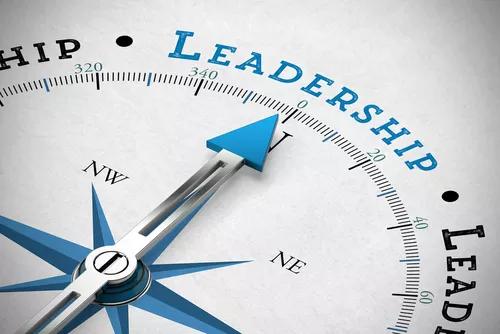 Philip: Flexibility and accommodating different working models to support the company’s performance ambition might be a key success factor for us. Even years before the COVID pandemic hit and sent us all to our home offices, we introduced flexible working and allowed employees more freedom in executing their work in other ways too. Leadership understands employees’ different needs, and line managers are more agile and tailored with their direct reports. Over the years we’ve developed new and additional learning formats that are attractive to younger and older generations.
Philip: Flexibility and accommodating different working models to support the company’s performance ambition might be a key success factor for us. Even years before the COVID pandemic hit and sent us all to our home offices, we introduced flexible working and allowed employees more freedom in executing their work in other ways too. Leadership understands employees’ different needs, and line managers are more agile and tailored with their direct reports. Over the years we’ve developed new and additional learning formats that are attractive to younger and older generations.
In a more digital but also busier work environment, we‘ve observed that online courses, LinkedIn Learning, and podcasts work well. We also have a monthly newsletter with local learning offerings from HR and a business-wide newsletter including capability highlights for information sharing amongst employees.
SEMI: Have you perceived any noticeable improvements on this?
Anja: I have had the pleasure to work with line managers at Merck KGaA, Darmstadt, Germany who prioritized a two-way exchange when defining learning and career objectives. This allowed me the freedom to explore different parts of the business, create experiences that would further my career, and adapt to new ways of working. I aim to do the same with my team today as we discuss individual ambitions, strengths, and weaknesses, and learning needs.
I have also noticed a positive change in global communications, from formats to style. We are using more diverse channels like intranet, social media and print media with greater purpose and efficiency. We also give virtual and authentic content a more prominent role, which I appreciate.
SEMI: How will your diversity and inclusion strategy unfold in 2023; what new programs will be implemented?
Philip: Merck KGaA, Darmstadt, Germany has set ambitious DE&I aspirations for 2030, so during 2023 we will continue to improve current scores, create an even more inclusive environment, and establish processes in talent attraction and hiring to help diversify our workforce. Our annual employee engagement survey, pulse checks, and listening sessions help maintain a constant exchange between leadership and the organization. Internal programs such as mentoring and sponsoring, employee resource groups, leadership enablement and training offerings of all sorts will continue to be our standard practice.
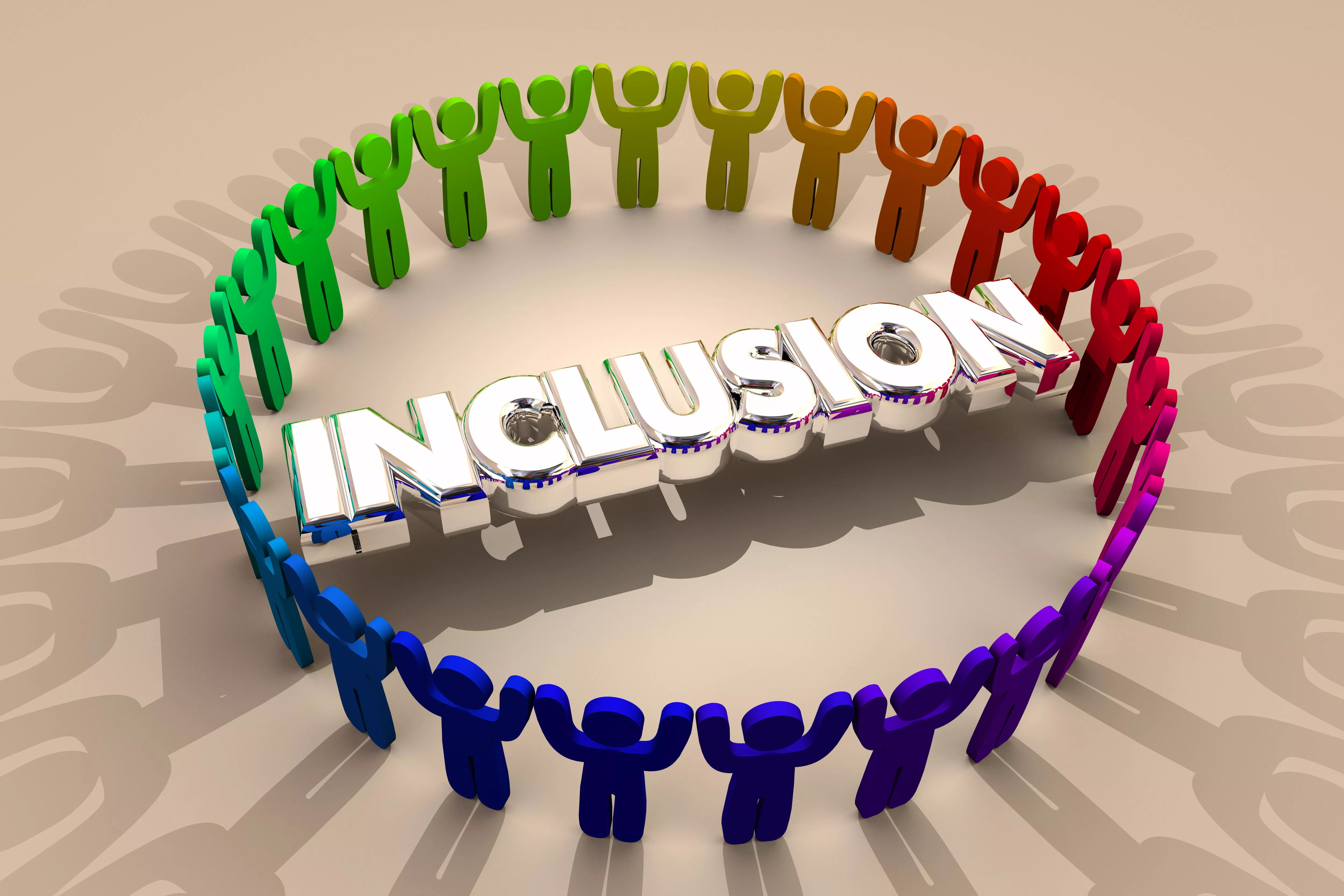 We are also working to more broadly communicate our DE&I achievements and critical business impacts to the industry and capital markets and explore how to further support the communities we serve and work in. One example is our USD$20 million commitment in October to CNote, a women-led impact platform that uses technology to unlock diversified community investments in order to increase economic mobility and financial inclusion.
We are also working to more broadly communicate our DE&I achievements and critical business impacts to the industry and capital markets and explore how to further support the communities we serve and work in. One example is our USD$20 million commitment in October to CNote, a women-led impact platform that uses technology to unlock diversified community investments in order to increase economic mobility and financial inclusion.
SEMI: How will these programs help developing professionals in their daily work and overall career journey?
Anja: Any activity or program that enhances diversity, equity, and inclusion will clearly help an organization strengthen its performance, employee morale, and reputation. Regardless of the generation, learning should never stop and collaboration will always be key to innovation, project success, and sustainability. If we can raise awareness about DE&I, it will allow all employees to see the beauty in generational differences and it will open their minds for further development.
While we can certainly learn a great deal from Generation X and Baby Boomers and incorporate their experience into our future plans, the younger generations add new flavors, approaches, and ideas. Our ways of working, approaching collaboration, and solving problems can be re-invented for even greater impact.
SEMI: If not managed properly, generational differences can impact workplace culture. What are the biases that come into play and how can we, as individuals and companies, overcome them?
Philip: For years, this has been a focal point at Merck KGaA, Darmstadt, Germany: how to realize and work through biases, especially unconscious biases. We aim to educate our people about how our brain works and why we feel biases. The first step is to understand and accept that we all have them. The second step is to challenge our biases and ask questions, which is fundamental to learning. Step three is to change biases through new experiences. In my opinion, generational difference and biases are no different than other diversity biases – only through open communication, education, and inclusion can we learn to work together more efficiently and more effectively – and ultimately be happier.
SEMI: What would you like leaders to know about your generation?
Anja: I would like to think that my generation (Generation Y / Millennials) is already quite well-established in the business world and even across leadership teams. Therefore, we have been able to create awareness of our generational characteristics and key needs of senior leadership. We ask leaders to not misinterpret seeking a purpose in life with being unfocused; that they accept that paths can look different and that we all start small; that they realize that younger talent is willing and equipped to work and learn; that they appreciate that mistakes sometimes need to be (re)made; and that they cherish that growing up in a more global and connected world makes this generation naturally more empathetic to differences, while seeking to belong and willing to include.
Learn more about Merck KGaA, Darmstadt, Germany diversity, equity and inclusion initiatives and visit the career page.
Merck KGaA, Darmstadt, Germany is a SEMI Europe member, DE&I annual sponsor and official sponsor of SEMICON Europa 2022.
The Electronics business of Merck KGaA, Darmstadt, Germany operates as EMD Electronics in the U.S. and Canada.
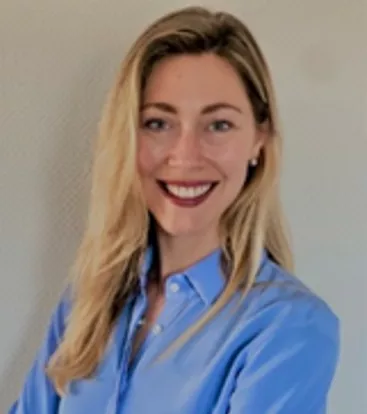 Anja Maria Muesch is Head of Use Case Management of Operations Digital Solutions at Merck KGaA, Darmstadt, Germany. Her team manages Use Cases for customers and suppliers. She holds a MSc in Business Chemistry and has in-depth experience in project management and strategy development focusing on Data and Digital.
Anja Maria Muesch is Head of Use Case Management of Operations Digital Solutions at Merck KGaA, Darmstadt, Germany. Her team manages Use Cases for customers and suppliers. She holds a MSc in Business Chemistry and has in-depth experience in project management and strategy development focusing on Data and Digital.
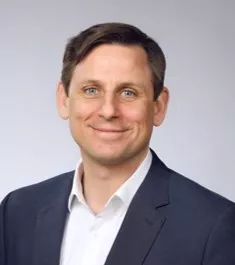 Philip Matthes joined Merck KGaA, Darmstadt, Germany in 2010 and since October 2019 has served as the Global Head of Human Resources for its Semiconductor Materials Business Unit. His role includes leadership of HR topics for a global business of over 1,5 bn EUR sales and over 4,000 employees; HR workstream for Level Up Growth Program; ambition to hire 1,000 additional FTEs in three years and building digital capability in U.S., Taiwan, Korea and China; lead post-merger organizational integration of Versum Materials into Merck KGaA, Darmstadt, Germany; and lead the organizational response to COVID-19.
Philip Matthes joined Merck KGaA, Darmstadt, Germany in 2010 and since October 2019 has served as the Global Head of Human Resources for its Semiconductor Materials Business Unit. His role includes leadership of HR topics for a global business of over 1,5 bn EUR sales and over 4,000 employees; HR workstream for Level Up Growth Program; ambition to hire 1,000 additional FTEs in three years and building digital capability in U.S., Taiwan, Korea and China; lead post-merger organizational integration of Versum Materials into Merck KGaA, Darmstadt, Germany; and lead the organizational response to COVID-19.
Cassandra Melvin is Senior Director of Business Development and Operations at SEMI Europe.